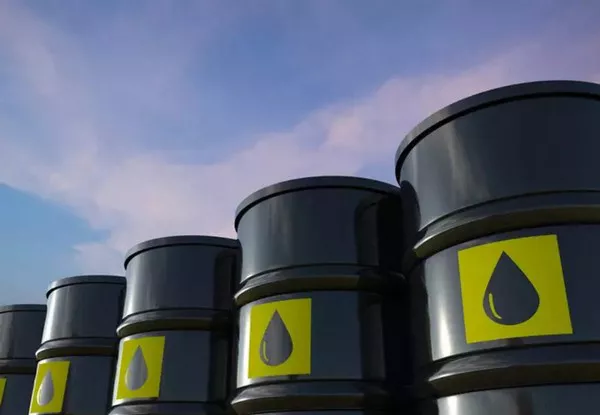The sale of gasoline through futures contracts is a common practice in the global commodities market, allowing participants to buy and sell contracts for the future delivery of gasoline at a predetermined price. Gasoline futures contracts provide a mechanism for producers, refiners, wholesalers, retailers, speculators, and hedgers to manage price risk, hedge against price fluctuations, and speculate on changes in gasoline prices. In this article, we will explore the concept of gasoline futures, how they work, and their significance in the broader energy and financial markets.
Understanding Gasoline Futures
Gasoline futures are financial contracts that obligate the buyer to purchase and the seller to deliver a specified quantity of gasoline at a predetermined price on a future date. These futures contracts are traded on commodity exchanges such as the New York Mercantile Exchange (NYMEX) and the Intercontinental Exchange (ICE), where participants can buy and sell contracts to speculate on or hedge against changes in gasoline prices.
Futures contracts for gasoline typically represent a standardized quantity of gasoline, such as 42,000 gallons, and are priced in U.S. dollars per gallon. The contracts have specific expiration dates, with different delivery months available for trading to accommodate varying needs and time horizons.
How Gasoline Futures Work
The gasoline futures market operates through a process of buying and selling futures contracts based on expectations of future gasoline prices. Participants in the market include producers, refiners, wholesalers, retailers, speculators, and hedgers, each with different objectives and strategies.
Producers and refiners may use gasoline futures to lock in prices for their future production, ensuring predictable revenues and managing risks associated with price volatility. Wholesalers and retailers may use futures contracts to hedge against price fluctuations and protect their profit margins on gasoline sales.
Speculators, on the other hand, seek to profit from changes in gasoline prices by buying and selling futures contracts based on their expectations of future price movements. Speculators may take long positions if they believe gasoline prices will rise or short positions if they expect prices to fall, aiming to profit from price changes without the intention of taking or making delivery of physical gasoline.
Hedgers use gasoline futures to offset the risk of price fluctuations in their underlying business operations. For example, airlines may use futures contracts to hedge against changes in jet fuel prices, which are closely correlated with gasoline prices. By entering into futures contracts, hedgers can lock in prices for future fuel purchases, reducing their exposure to adverse price movements.
Significance of Gasoline Futures
The gasoline futures market plays a crucial role in the global energy and financial markets, serving several key functions:
Price Discovery: Gasoline futures provide a transparent and efficient mechanism for determining prices based on supply and demand dynamics, market sentiment, geopolitical events, and other factors. Prices established in the futures market influence spot prices for physical gasoline transactions, helping market participants make informed decisions about buying, selling, and managing risk.
Risk Management: Gasoline futures allow businesses involved in the production, distribution, and consumption of gasoline to manage price risk and volatility effectively. By entering into futures contracts, participants can hedge against adverse price movements, protecting their profit margins and financial stability.
Liquidity and Efficiency: The gasoline futures market is highly liquid, with active trading volumes and tight bid-ask spreads, allowing participants to enter and exit positions quickly and cost-effectively. This liquidity enhances market efficiency, ensuring that prices accurately reflect market fundamentals and facilitating price discovery.
Global Market Access: Gasoline futures are traded on international commodity exchanges, providing market participants with access to a global marketplace for hedging and speculation. This global reach allows producers, refiners, wholesalers, and retailers to manage price risk effectively, regardless of their geographic location or market exposure.
Factors Influencing Gasoline Futures Prices
Several factors can influence gasoline futures prices, including:
Supply and Demand: Changes in global supply and demand dynamics, such as production levels, refinery capacity, consumption trends, and geopolitical developments, can impact gasoline futures prices. Supply disruptions, such as hurricanes, refinery outages, or geopolitical tensions, can lead to short-term price spikes, while shifts in consumer behavior or economic growth can affect long-term demand trends.
Crude Oil Prices: Gasoline prices are closely linked to crude oil prices, as gasoline is derived from crude oil through the refining process. Changes in crude oil prices, driven by factors such as OPEC production decisions, geopolitical events, and global economic conditions, can influence gasoline futures prices.
Refining Margins: Refining margins, the difference between the cost of crude oil and the value of refined products such as gasoline, can impact gasoline futures prices. Refining margins are influenced by factors such as refinery capacity, operating costs, regulatory requirements, and competition from alternative fuels.
Seasonal Factors: Gasoline demand exhibits seasonal patterns, with peak demand typically occurring during the summer driving season and lower demand during the winter months. Seasonal factors, such as changes in weather patterns, travel habits, and fuel specifications, can affect gasoline futures prices.
Conclusion
In conclusion, gasoline futures play a vital role in the global energy and financial markets, providing a mechanism for price discovery, risk management, and speculation for participants involved in the production, distribution, and consumption of gasoline. By understanding how gasoline futures work and the factors that influence prices, market participants can make informed decisions about buying, selling, and managing risk in the dynamic and interconnected world of energy commodities. Whether seeking to hedge against price risk, speculate on price movements, or manage exposure to gasoline prices, the gasoline futures market offers a valuable tool for achieving financial objectives and managing uncertainties in an ever-changing marketplace.


